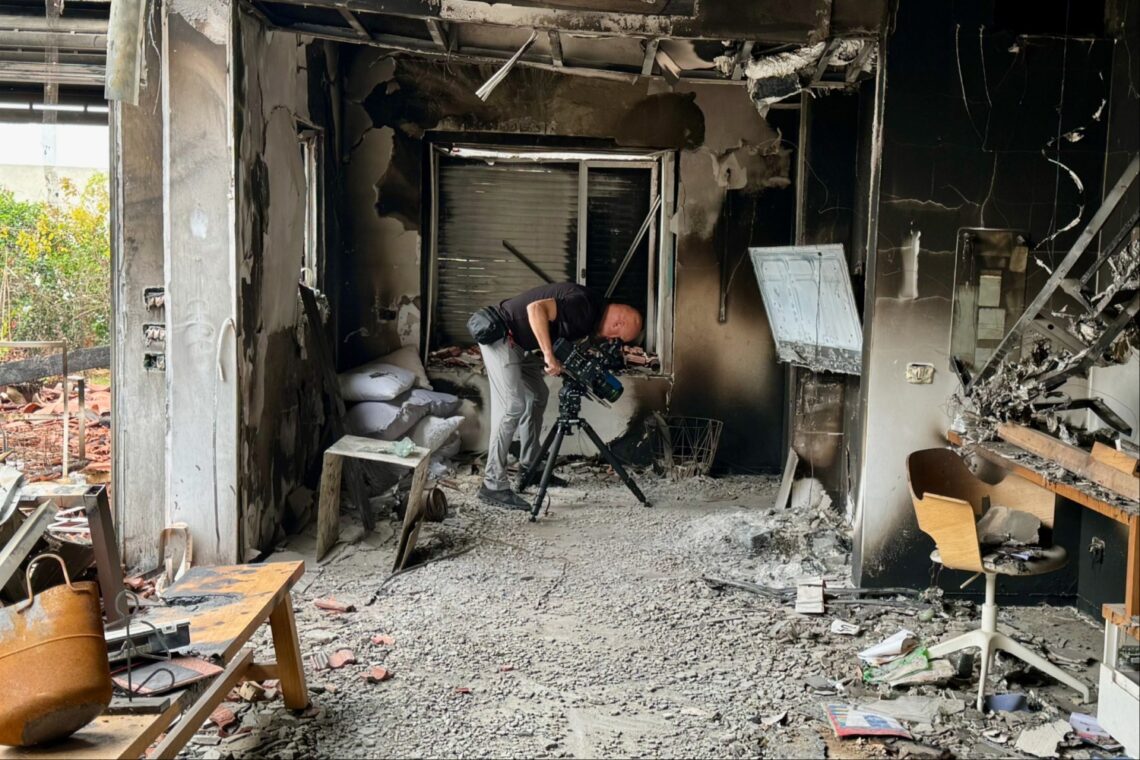Filmmaker Navigates the Depths of Human Tragedy
Unveiling the worst days through the lens
Specializing in documentaries that delve into the most harrowing human experiences, Dan Reed has crafted a career capturing moments that most would prefer to forget. His works, including the acclaimed “Leaving Neverland” and the gripping series “The Truth vs Alex Jones,” push victims to revisit their darkest days, offering audiences an unvarnished glimpse into tales of unimaginable tragedy.
Chronicling large-scale terror: A daunting endeavor
A portfolio of grim subjects
Reed’s documentaries span a spectrum of devastating events. He’s won accolades, such as an Emmy and a BAFTA, for his confronting exploration of child sexual abuse in “Leaving Neverland.” His foray into large-scale terror attacks is extensive, featuring harrowing accounts from the Moscow theater hostage crisis in 2002, the 60-hour siege of Mumbai in 2008, to the Nairobi Westgate mall attack in 2013.
Balancing the emotional toll
The challenge for Reed is immense: how does one immerse in these gruesome realities without succumbing to despair? Reed describes a mental barrier he’s developed, a mechanism that shields him from the immediate emotional impact. This conscientious detachment allows him to persist in his mission of bearing witness and amplifying victims’ stories to the broader public.
Haunted by the footage
Psychological toll and coping mechanisms
Despite his mental defenses, Reed admits that the burden of reliving these tragedies haunts him. Reflecting on his early career in warzones like Bosnia and Kosovo, he shares how the traumatic experiences erased his dreams as an unconscious defense mechanism. One poignant memory involves waking up in London with the smell of charred human flesh vividly invading his senses — a stark reminder of his past assignments.
“One Day in October”: A heartbreaking narrative
A deep dive into recent horrors
Reed’s latest project, “One Day in October”, takes viewers to Kibbutz Be’eri, an idyllic village turned nightmarish by a brutal terror attack on October 7. Filming commenced just a month after the assault, capturing the immediate aftermath and the profound loss felt by a community where about 10% of residents were murdered and 30 taken hostage.
Part of a broader examination
The 90-minute documentary forms part of a trio of films commissioned to scrutinize the Hamas attacks and Israel’s response. The remaining films will address the consequences of ensuing conflicts in Gaza and the West Bank, providing a comprehensive understanding of the regional turmoil.
Bearing witness through the camera
Choosing Kibbutz Be’eri
Reed’s focus on Kibbutz Be’eri stems from its reputation as a haven of utopian living under the communist ethos of the kibbutz movement. It was home to prominent left-wing and pro-Palestinian activists, making the attack all the more jarring.
The challenge of depicting horror
One of the critical elements of Reed’s work is handling brutal content responsibly. The documentary incorporates footage from various sources, including CCTV and livestreams by Hamas operatives. His goal is to provoke the audience without desensitizing them, suggesting that longform storytelling can foster empathy in ways that superficial clips on social media cannot.
Sensitive consultation with victims
Reed’s commitment to ethical filmmaking is evident in his approach. Victims and their families are consulted throughout the production process. In some cases, such as with Sandra Cohen, who lost her baby in the attack, survivors decline participation to avoid retraumatization. Conversely, the families of young men killed at the kibbutz gates granted permission for their deaths to be shown on film, under specific conditions to maintain dignity.
Facing misinformation head-on
Combatting denial and conspiracy theories
In today’s digital age, misinformation surrounding events like these spreads swiftly. Reed experienced this firsthand after the Nairobi Westgate attack, facing baseless conspiracy theories. The October 7 assault was no different, rapidly attracting false claims. Reed emphasizes the importance of thorough fact-checking to counter these narratives, underscoring that the targeting of civilian communities by terrorists is a verifiable atrocity.
Unveiling human nature in crisis
Capturing ordinary lives in extraordinary circumstances
Reed is driven by a deep fascination with how ordinary lives are upended by horrific events. His documentaries probe the immediate, visceral decisions people are forced to make in moments of extreme crisis—decisions that reveal the core of human nature.
A universal resonance
Despite the particularities of each event, Reed believes his films resonate universally. The fear and helplessness experienced by those in bomb shelters, awaiting an unknown fate, taps into a primal fear shared by all. This shared nightmare is what makes his storytelling so compelling and relevant.
“One Day in October” as a mirror
“One Day in October” isn’t just a recount of a tragedy but a mirror reflecting the resilience and vulnerability inherent in humanity. Through Reed’s lens, the world witnesses not just the horrors of the past but the enduring strength of those who survive.
Did you enjoy this article? Share it on your social channels and let us know your thoughts! Don’t miss out on the latest updates! Follow us on social media to stay informed about the newest releases.

 Italian
Italian







